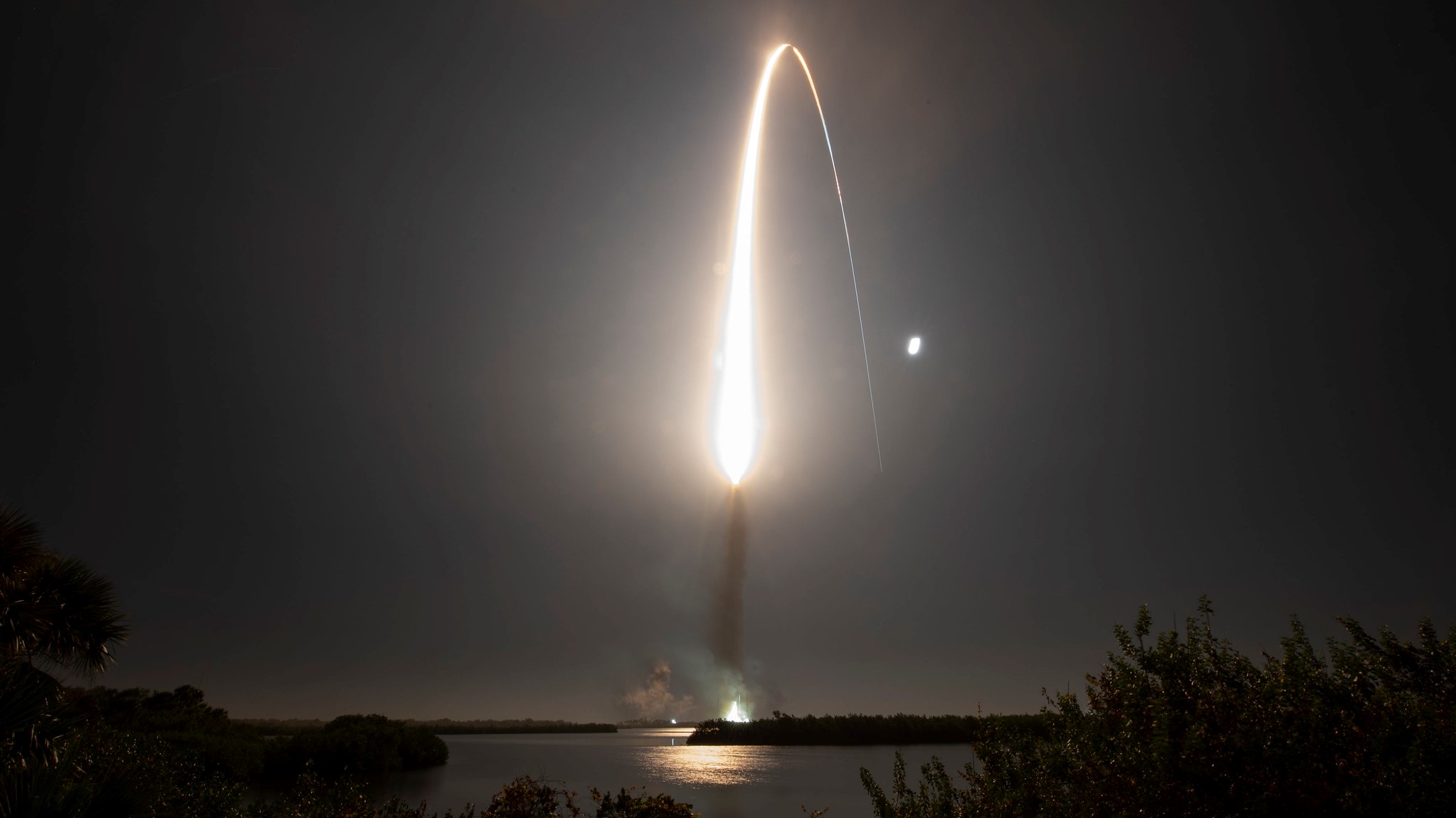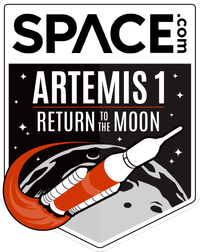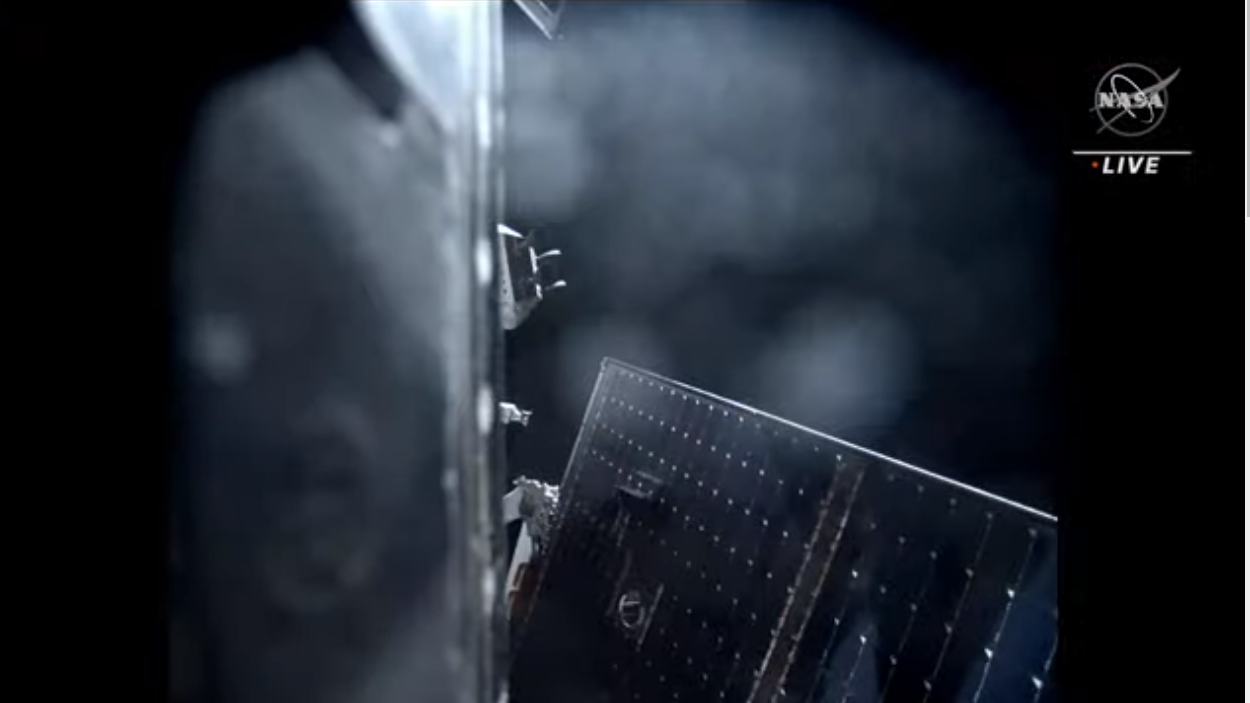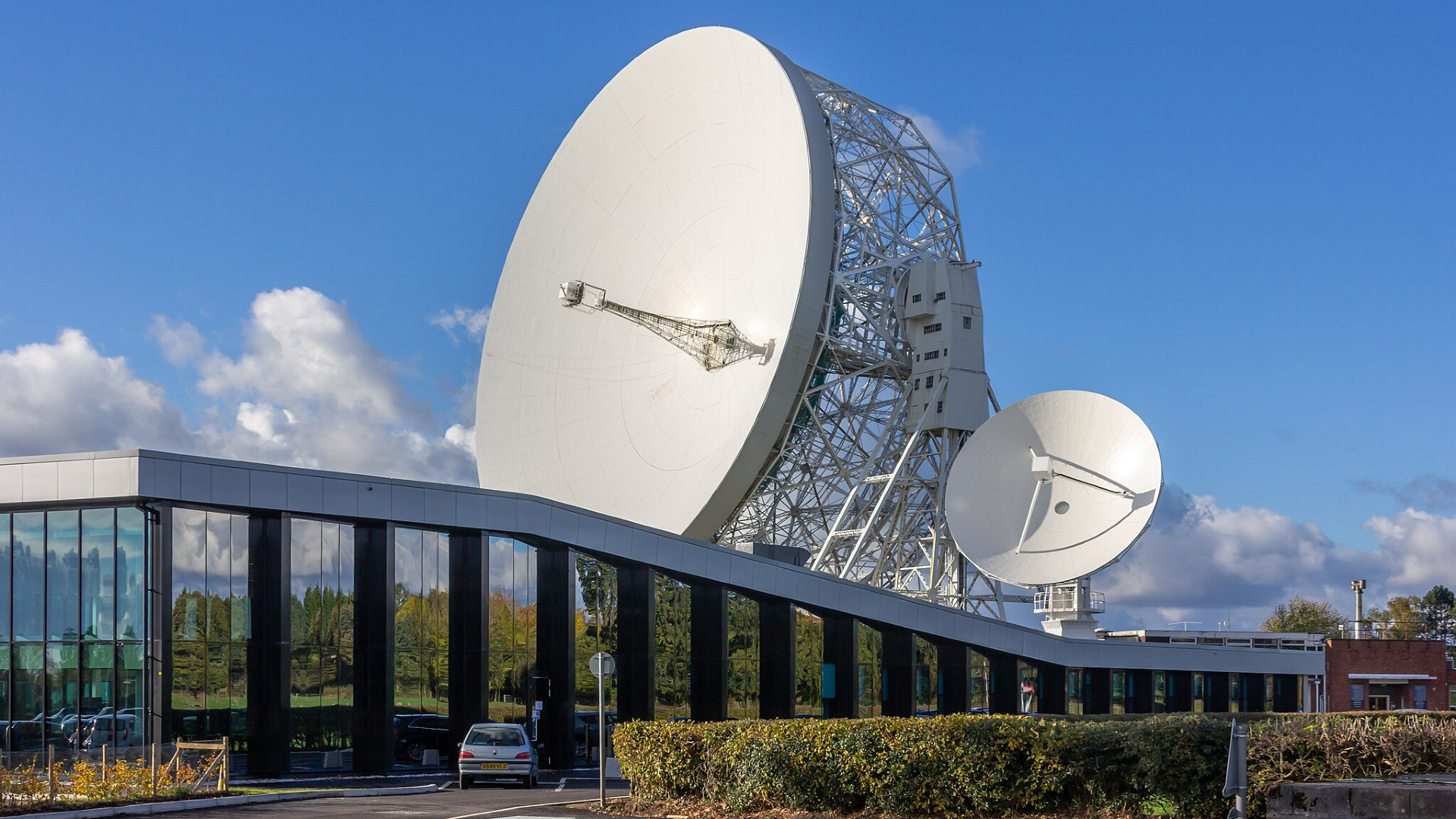NASA's Artemis 1 moon mission will carry science across the solar system
"We're moving out into back to the moon and on to Mars."


Breaking space news, the latest updates on rocket launches, skywatching events and more!
You are now subscribed
Your newsletter sign-up was successful
Want to add more newsletters?

Delivered daily
Daily Newsletter
Breaking space news, the latest updates on rocket launches, skywatching events and more!

Once a month
Watch This Space
Sign up to our monthly entertainment newsletter to keep up with all our coverage of the latest sci-fi and space movies, tv shows, games and books.

Once a week
Night Sky This Week
Discover this week's must-see night sky events, moon phases, and stunning astrophotos. Sign up for our skywatching newsletter and explore the universe with us!

Twice a month
Strange New Words
Space.com's Sci-Fi Reader's Club. Read a sci-fi short story every month and join a virtual community of fellow science fiction fans!
NASA's new moon mission will bring science to multiple solar system destinations, a senior agency official said Wednesday (Nov. 16).
Hours after the launch of Artemis 1 kicked off the larger Artemis program effort to return humans to the moon, a NASA official said that the uncrewed mission, which lifted off at 1:47 a.m. EST (0647 GMT), is a keystone in building future missions with humans on board.
"Artemis 1 is the first in a series of increasingly complex missions to explore the moon in preparation for missions to Mars," Kate Calvin, NASA's chief scientist and senior climate advisor, told Space.com in a video interview.
Related: Artemis 1 launch photos: Amazing views of NASA's moon rocket debut (gallery)
Compared to the crewed Apollo program moon missions of the 1960s and 1970s, the Artemis program is meant to do more science and stay for longer than even the three days that longer missions like Apollo 17 managed at the end of the program, Calvin explained.
"The science, we're using both humans and robots to learn more about the moon, in preparation for ... other missions in the future," she said, referring both to Artemis missions and to crewed efforts with other celestial destinations.
While Artemis 1 is flying to lunar realms, Calvin said the mission will nonetheless benefit Earth science. Scientific payloads and mannequins on board the Orion spacecraft will be measuring and assessing radiation in cislunar space to learn "impacts on crew and electronics," while other experiments and cubesats will gather pictures and biological measurements of living creatures like algae, seeds, fungi and yeast.
Breaking space news, the latest updates on rocket launches, skywatching events and more!
Practice living off-Earth for long periods will also benefit sustainability on our planet, Calvin said.
Related: Epic Artemis 1 rocket launch spotted streaking through Earth's atmosphere in satellite image
Following Artemis 1 is the Artemis 2 crewed mission that will loop around the moon no earlier than 2024, and the Artemis 3 landing mission targeting 2025 or 2026, assuming the debut effort goes as planned.
"Each mission within Artemis is increasing the complexity," Calvin said. "We're really excited about that, as we're moving out into back to the moon and on to Mars."
Elizabeth Howell is the co-author of "Why Am I Taller?" (ECW Press, 2022; with Canadian astronaut Dave Williams), a book about space medicine. Follow her on Twitter @howellspace. Follow us on Twitter @Spacedotcom or Facebook.

Elizabeth Howell (she/her), Ph.D., was a staff writer in the spaceflight channel between 2022 and 2024 specializing in Canadian space news. She was contributing writer for Space.com for 10 years from 2012 to 2024. Elizabeth's reporting includes multiple exclusives with the White House, leading world coverage about a lost-and-found space tomato on the International Space Station, witnessing five human spaceflight launches on two continents, flying parabolic, working inside a spacesuit, and participating in a simulated Mars mission. Her latest book, "Why Am I Taller?" (ECW Press, 2022) is co-written with astronaut Dave Williams.

